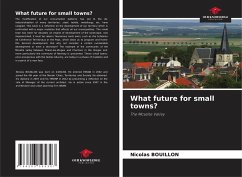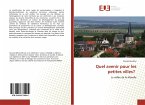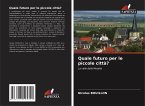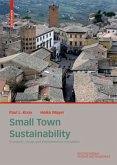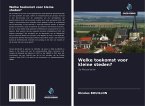The modification of our consumption patterns has led to the de-industrialization of many territories: steel, textile, metallurgy, etc. have stopped. This book is a reflection on the development of our territory which is confronted with a major mutation that affects all our municipalities. The small town has been for decades an engine of development of the landscape, now impoverished, it must be reborn. Numerous tools exist, such as the Schémas de Cohérence Territoriaux or the Pays, which allow us to program and frame this desired development. But why not consider a certain sustainable development or even a decrease? The example of the communes of the Moselle valley between Thaon-les-Vosges and Charmes in the Vosges and more particularly the commune of Nomexy is presented. These small towns, once prosperous with the textile industry, are today in a phase of mutation and in search of a new face.
Bitte wählen Sie Ihr Anliegen aus.
Rechnungen
Retourenschein anfordern
Bestellstatus
Storno

